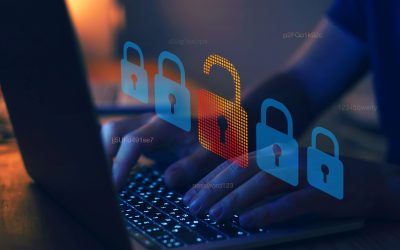Out Of Office: 8 Cybersecurity Best Practices For Dayton Business Travelers Going On Vacation
As summer dawns, many professionals and business owners look forward to a well-earned respite. However, it’s common for high achievers to find themselves attending to some work during their vacation. Nevertheless, it’s critical to remember that remote work, whether from a holiday destination, a local café, or during business trips, can pose substantial cybersecurity risks. Should you or your team need to respond to pressing emails or monitor ongoing projects during your summer break, it’s vital to adhere to robust cybersecurity practices to prevent potential attacks on your company network. In this blog post, we’ll explore essential cybersecurity precautions for remote workers, ensuring you can work efficiently and enjoy your vacation without fretting over data breaches.
The Significance of Cybersecurity during Travels
For corporate travelers, staying connected to the workplace is a necessity of the digital era, facilitated by our handy devices. However, this perpetual connectivity also brings an escalated risk of cyber threats. From accessing public Wi-Fi networks in your hotel’s lobby to retrieving sensitive documents from your hotel room, you risk exposing your organization to hackers, malware, and other cyber hazards.
Crafty cybercriminals are well aware of this! They know that individuals are more prone to relaxing their vigilance during a vacation. They’re aware that your focus on savoring your break could mean less attention paid to securing your devices. This lapse makes vacationers lucrative targets for cybercriminals, employing various strategies such as phishing emails, counterfeit websites, and man-in-the-middle attacks to compromise your data.
Lower your risk…
To mitigate the risk of a cyber attack during your travels, here are some best practices to share with your team:
1. Adopt a Virtual Private Network (VPN): VPNs encrypt your internet connection, safeguarding your data even when using public Wi-Fi networks. Ensure you install a VPN on your devices and use it whenever you’re online before leaving for your vacation.
2. Keep Devices Up-to-date: Prior to your vacation, update your devices with the latest software and security patches. Obsolete software could leave you exposed to cyber threats, making it crucial to stay updated.
3. Exercise Caution with Public Wi-Fi: Public Wi-Fi networks, although handy, can be rife with cybercriminal activities. Avoid using these networks as much as possible. This includes refraining from checking your emails poolside unless you’re using a VPN.
4. Enable Two-Factor Authentication (2FA): 2FA offers an additional layer of security for your accounts, requiring a second form of verification like a text message code or fingerprint scan. Activate 2FA for all your crucial accounts before you set off.
5. Be Alert for Phishing Attempts: Cybercriminals frequently target travelers with phishing emails, intended to trick you into divulging sensitive information. Exercise caution with emails received during your vacation and avoid clicking on dubious links or downloading unfamiliar attachments.
6. Secure Your Devices: Ensure the physical security of your devices by keeping them with you at all times and never leaving them unattended in public areas. Additionally, enable password protection, biometric authentication where possible, and remote wiping capabilities in case your device is lost or stolen.
Let Net X Help!
Whether you’re traveling for business or leisure, your cybersecurity shouldn’t be compromised. Adhering to these best practices can decrease the chances of a data breach or other cybersecurity issues while you’re away from the office. However, remember that these measures aren’t foolproof. For robust cybersecurity, you should collaborate with a competent IT team capable of monitoring your network round the clock, patching any vulnerabilities that arise (a regular occurrence), and alerting you promptly if anything goes wrong.
To assist in preparing for your vacation and ensuring your peace of mind, click here to schedule a free IT assessment with our experts. We’ll examine your existing cybersecurity measures, identify potential vulnerabilities, and provide recommendations for a comprehensive security strategy to ensure your company’s safety. Questions? Give us a call at (937)291-9900 or click here.



